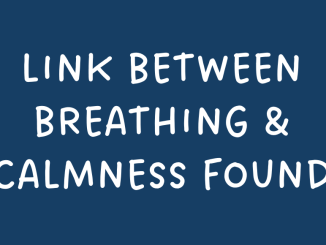Gaslighting has become a term most people are familiar with, but may not exactly know what it means, or how they may even be a victim of it.
The term comes from an old British play and then later a film in which a wealthy woman is manipulated by an older man into believing that she is losing her mind. He makes her question her reality by telling her that the gaslights in their house are dimming.
The behaviour is about gradually undermining a person’s confidence as they start to struggle to identify truth from falsehood, right from wrong, or reality from appearance.
This may render the person pathologically dependent on the gaslighter (which is exactly where they want you to be).
Gaslighting is a form of and a sign of Coercive Control (with a reminder that in NSW and some other jurisdictions coercive control is a criminal offence).
In my experience, kindhearted and sensitive people may be more susceptible to this form of abuse because their default belief is that people who love and care for you wouldn’t or couldn’t possibly do anything malevolent.
You might also be a good target for a gaslighter if you come into the relationship with some vulnerabilities. These could be things like having experienced a difficult childhood or having a dysfunctional family. How hard is it to link your today behaviours with these other “faults” if you are the gaslighter, not very.
It is a terrible trap to find yourself in as you lose the ability to think straight. You lose sight of your reality. You lose your true identity.
I just finished an excellent book on the topic – Gaslighting by Dr. Stephanie Sarkis. The book covers the many traits of the Gaslighter, how they manage to infiltrate your world, and the damage that they can do.
Interestingly, Dr. Sarkis looks at the behaviour not just in a personal relationship space, but also in other environments such as in the workplace.
There are many parts of the book that are worth highlighting, however, I thought I would share these brief excerpts. Firstly, a good definition of what can be experienced in a relationship that includes gaslighting:
Gaslighters will convince us that we are crazy, that we are abusive, that we are a huge bundle of problems and no one else will want us, that we are terrible employees, that we are terrible parents who shouldn’t have had children, that we have no idea how to manage our own life, or that we are a burden to others.
This section relates to the deception that the gaslighters can use to convince people that they aren’t the issue:
Gaslighters are very good at acting “normal”. They make sure you are reeled in before welcoming you into their inner sanctum of insanity. Even mental health professionals have been lured into relationships with gaslighters. They will act so “normal” that even a professional can’t always tell who they really are underneath.
Dr. Sarkis also shows what can happen when a victim tries to break from the gaslighter and the toxic cycle (please note that victims and gaslighters can be either male or female, and Dr. Sarkis’ use of the “he” is only concerning clarity for the reader):
Upsetting him could be a result of your standing up for yourself, stating something was upsetting to you, or not following some unwritten rule that you didn’t know you had to follow. Suddenly, you’ve gone from queen to crap. The gaslighter sets things up so that you are always going to fall off the pedestal he places you on. By idealizing and then devaluing you, he keeps you off-kilter.
Lastly, I’d like to draw your attention more specifically to that cycle of abuse. As Dr. Sarkis says, gaslighters can’t be abusive all the time because if they were you’d wake up to their game:
Gaslighters aren’t usually 100% bad – if only it were that easy. They can still have moments of behaving humanely.
It is a sad reality for many people that the person that they love just isn’t capable of playing fair. There is also a sadness in knowing that the gaslighter may also never really experience genuine reciprocated closeness, love, and a healthy relationship.
For anyone looking to learn more on the topic, including growing your awareness of the signs to be on the lookout for, I would recommend Dr. Sarkis’ book.



